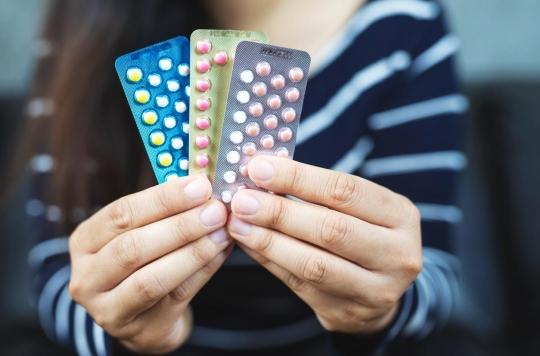A new birth control pill, to be taken just before sex, has performed very well in a clinical trial. A way to protect yourself from pregnancy without daily intake. Explanations.

- The IUD is the first contraceptive used by women from the age of 35.
- In 2016, 8% of women said they did not use any means to avoid pregnancy, compared to 13.6% in 2010.
Pills, IUDs, implants, patches, vaginal rings, condoms… And perhaps soon a pill on demand, to be taken just before sexual intercourse. A team of researchers from Stanford University, in the United States, are working on this contraceptive solution. For two months, as part of a clinical trial, they tested the first version of their pill on nine women aged 18 to 25. Their results were published in the journal British Medical Journal (BMJ) Sexual and Reproductive Health.
A mixture of ulipristal acetate and meloxicam that disrupts ovulation
The participants took the pill before each sexual encounter. The latter consists of 30 milligrams of ulipristal acetate, defined as an emergency contraceptive by the VIDAL, and 30 milligrams of meloxicam, which is usually used to fight pain and inflammation. According to their results, scientists believe that this pill is “a promising candidate for evaluation as a pericoital oral contraceptive”that is, before sexual intercourse.
In the clinical trial, it was shown that this pill “disrupts ovulation at the peak of luteal thrust”, that is, the days before an egg is released. On the other hand, the scientists also noted an increase in the length of the menstrual cycle from 29 to 32 days in the participants. Finally, their level of progesterone, namely a hormone which prepares the uterus for implantation and maintains pregnancy at the very beginning, has also dropped.
Towards a new contraceptive?
The advantage of this new device taken just before sexual intercourse is to be less restrictive for women, unlike the classic pill which must be taken every day at a fixed time. And yet, according to the health barometer on women’s contraceptive practices and their changes since 2010 published by Santé Publique France in 2016, the pill remains the contraceptive most used by French women. In total, 36.5% of women take it. A percentage that even rises to 60.4% among 15-19 year olds and 59.5% among 20-24 year olds. But since 2012, this contraceptive method has been in sharp decline, in particular because of the debate on 3rd and 4th generation pills. In 2010, 45% of women used it, i.e. 8.5 points more than in 2016.
But before finding this new pill “on demand” in pharmacies, we will have to wait a little longer. For the moment, the marketing is not yet planned because the small cachet must still pass several clinical trials, in particular to evaluate its potential possible side effects on the health of women.















